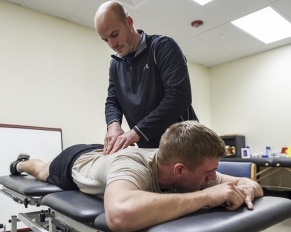During this challenging time and with social distancing becoming the norm, telemedicine/telehealth is the perfect way to continue progressing toward…


During this challenging time and with social distancing becoming the norm, telemedicine/telehealth is the perfect way to continue progressing toward…
Spider veins are one of the most common conditions that affect people. While typically not dangerous, spider veins can be unsightly and cause embarrassment for those who have them. Some studies have shown that up to half of adult women in the United States and many men will develop them at some point. Luckily, there are many safe and effective treatment methods that can be used to eliminate them. However, like many conditions, the best strategy is to avoid developing them in the first place by understanding the risk factors and taking steps to prevent them. A vein center will be able to give specific advice for each individual situation if you notice spider veins developing or are worried that you might be at risk.

Due to the current concerns about coronavirus and access to medical advice and services, telemedicine seems to be on people’s…

Sports injuries have the power to take athletes away from their sport for games, seasons and sometimes entire careers. Commonplace…

According to the Centers for Disease Control (CDC), “Obesity is common, serious, and costly.” The CDC’s website reports that more than one third of all American adults are obese, adding that “obesity-related conditions such as heart disease, stroke, type 2 diabetes, and certain types of cancer can be prevented.” Pretty shocking to think that many of these diseases are largely preventable when obesity is overcome. The cost as well is shocking, as the CDC reports that the estimated annual medical cost of obesity in the United States is close to $150 billion. Sadly, these statistics do not surprise top gastroenterologists. If you are facing obesity-related health problems now or in the future, you may be considering weight loss surgery, but you may also be reluctant to take such drastic measures. Clearly, invasive weight loss surgeries are not for everyone. Thankfully, there are newer, noninvasive weight loss procedures.